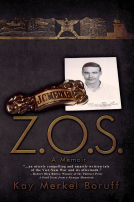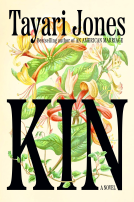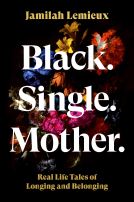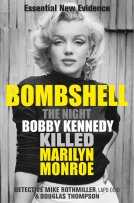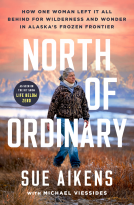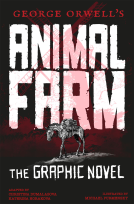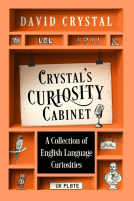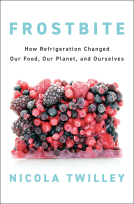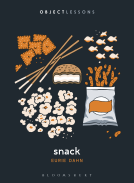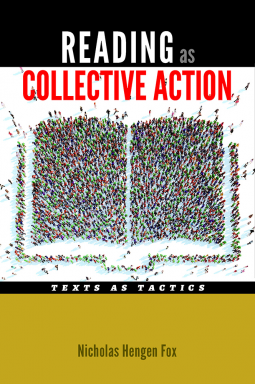
Reading as Collective Action
Text as Tactics
by Nicholas Hengen Fox
This title was previously available on NetGalley and is now archived.
Send NetGalley books directly to your Kindle or Kindle app
1
To read on a Kindle or Kindle app, please add kindle@netgalley.com as an approved email address to receive files in your Amazon account. Click here for step-by-step instructions.
2
Also find your Kindle email address within your Amazon account, and enter it here.
Pub Date Oct 01 2017 | Archive Date Oct 01 2017
University of Iowa Press | University Of Iowa Press
Description
Reading as Collective Action shifts our focus outward, to another of literature’s powers: the power to reshape our world in very public, very active ways. In this book, you will encounter readers who criticized the Bush administration’s war on terror by republishing poems by writers ranging from Shakespeare to Amiri Baraka everywhere from lampposts to the New York Times. You will read about people in Michigan and Tennessee, who leveraged a community reading program on John Steinbeck’s The Grapes of Wrath to organize support for those in need during the Great Recession and to engage with their neighbors about immigration. You will meet a pair of students who took to public transit to talk with strangers about working-class literature and a trio who created a literary website that reclaimed the working-class history of the Pacific Northwest.
This book challenges dominant academic modes of reading. For adherents of the “civic turn,” it suggests how we can create more politically effective forms of service learning and community engagement grounded in a commitment to tactical, grassroots actions. Whether you’re a social worker or a student, a zine-maker, a librarian, a professor, or just a passionate reader with a desire to better your community, this book shows that when we read texts as tactics, “that book changed my life” can become “that book changed our lives.”
Advance Praise
“Nicholas Hengen Fox offers a powerful case for the potential of using literature for public impact. From the high theory of Habermas to the streets of Knoxville, he weaves portraits of community-engaged teaching and learning that demonstrate how reading ‘in public’ broadens and strengthens our words, our world, and ourselves.”—Dan Sarofian-Butin, author, Service-Learning in Theory and Practice
“In Reading as Collective Action, Nicholas Hengen Fox marvelously illustrates a ‘re-reading of reading’ as public work—work in public, with publics, for public purposes. He takes leadership in the emerging democracy efforts around higher education, and, more broadly, adds to the repertoire of tactics for the emerging nonviolent civic life movement.”—Harry C. Boyte, senior scholar, Sabo Center for Democracy and Citizenship, Augsburg College
Available Editions
| EDITION | Paperback |
| ISBN | 9781609385255 |
| PRICE | $65.00 (USD) |
| PAGES | 168 |
Links
Average rating from 8 members
Featured Reviews
 Andre K, Reviewer
Andre K, Reviewer
This is a book after my own heart. My less bookish friends often challenge me as to what my reading is doing for the larger community. Well Nicholas Hengen Fox examines just how reading when done collaboratively can change lives. In the prologue he states,"Literature is powerful. It offers respite. It provides access to beauty and horror, to new places, new people, and new ideas. It can, as the phrase goes, change your life. Good things, all of them. But also somewhat limited goods: they’re all pretty passive, pretty private—you might even say selfcentered."His goal in this text is to shift the focus "outward"so that the often used phrase, "this book changed MY life" becomes "this book can change OUR lives." The "hope is your own..........reader, to connect your reading with our responsibility to create a more just world."
He presents his case by using three examples of texts being used as tactics. The republishing of poems after 9-11 terror attack, from a wide range of poets, Shakespeare to Amira Baraka and those poems being shared on lampposts, street corners and in major newspapers. A group of folks used the John Steinbeck novel, The Grapes Of Wrath to organize and engage in their community with themes around the novel. And also how his students created projects to talk with strangers in public about a certain genre of books. All very good examples to aid in his plea of using texts as tactics. If one reads a book and is transformed, or finds ideas that resonate in the book that can lead to helping to transform others, what would be the result if the reader's mindset was to use texts as tactics? The book is a bit academic in its presentation but remains very accessible.The idea of using texts as tactics is a great one and a reader could use this book as a guide to spur some action in their own community, literature has the ability to build bridges and enhance communication. The difference between using texts as tactics as opposed to just reading and discussing is like talking about the importance of feeding the less fortunate and actually going out and feeding your fellow citizens. "Both approaches might be marked by empathy, but tactical reading puts empathy into practice."
He provides a solid theory around the efficacy of using texts as tactics arguing for representation, recognition and redistribution of texts.
"Tactical readers work on all three aspects. They try to humanize people who are ignored or demeaned; they try to build understandings of those who are marginalized or under attack. To credit literature with the work of recognition is, perhaps, not so surprising. But tactical readers also shape political representation by amplifying marginalized voices within governmental and civic institutions and by empowering them to work against existing power structures as well. More remarkable still, they also engage in redistribution: economic (sharing money); material (sharing food); and immaterial (sharing suppressed knowledge and ideas)."If you have pondered how you can use reading and books to effect change then this is a must read for you. The academic feel notwithstanding, I highly recommend this book for taking a deeper dive into the power of literature. I'm sure most readers will share the same appreciation. Thanks to Netgalley for an advanced ecopy in exchange for a fair and honest review. Book publishes on Oct. 1st
 Anne M, Reviewer
Anne M, Reviewer
I loved this book because it sits well with my belief that books change lives. It is a mix of academic research backing up individual stories of how activists have used reading and writing to change lives and communities. Hengen Fox writes of people who challenged the war on terror, the attitude to immigration or poverty by organising around books. It shows how to use "text as tactics" and potentially change lives.
I was given a copy of this book by Netgalley in return for an honest review.
 Earl M, Reviewer
Earl M, Reviewer
In Reading as Collective Action Nicholas Hengen Fox moves beyond the widely acknowledged role reading plays in shaping our world views, from social to political, and addresses the role reading (or the texts themselves) can play in collective action. This is not another book about how reading can help one to be more of an activist or to care more about people or issues. This is about how reading and texts can be used, the act and the physical text, to create a community that can then work toward change in this world.
Some readers seem to have missed the point and thought it was about how reading can motivate a person. While that certainly will be an early stage in any collective reading, namely in motivating the organizer to find and use a text in a collective manner, Fox is attempting to explain the communal use rather than the personal use in this book. So if you have been moved by a work and wish more people would read it or that it would start a larger conversation, this book may be for you. Through examples and some theorizing (nothing particularly complex, just some hows and whys) we see that reading does not have to be strictly an individual activity. Even book clubs, which I love, are not examples of collective reading since action is not a goal of most such groups even when possible action is a large part of the discussion. Here, Fox is talking about reading with a definite goal in mind, a goal that includes others and includes some form of action.
If I seem to harp on what the book is not I apologize but the couple of discussions I have had gave me the impression the people either didn't read the book (at least not attentively) or confuse collective action with individual action within a group. Either way, I just feel compelled to make sure potential readers know that this is not simply a repeat of the many books about how reading makes us aware, empathetic, and more likely to act but rather about how to use a text or texts in a collective situation to generate both understanding and action.
Reviewed from a copy made available by the publisher via NetGalley.
Readers who liked this book also liked:
Jakub Politzer (Illustrator), Christina Dumalasova (adapter), Katerina Horakova (adapter)
Comics, Graphic Novels, Manga, General Fiction (Adult)
